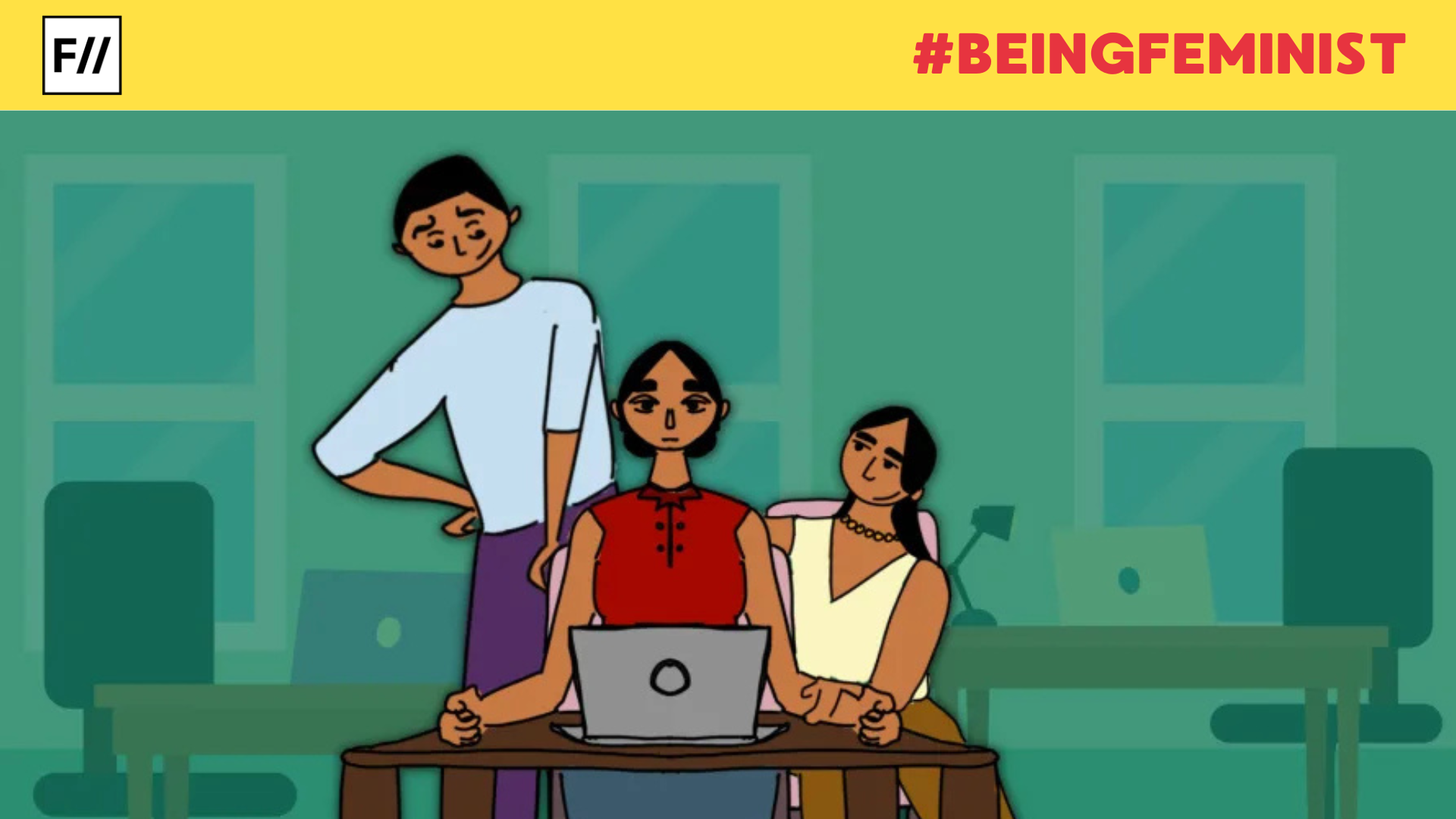As overcrowded buses are becoming safest place for predators to harass the college going girls and women in Kashmir, Srinagar’s Kounsar Jan’s initiative is turning out to be fruitful against sexual harassment in public buses.
Women in Kashmir find it a taboo to share their concerns to their family members and are wary of filing cases in police station against the sexual harassment they face. Thus they are silently becoming victims of harassment every day in overcrowded buses.
However, 33 years old Kounsar Jan steps forward by starting an e-rickshaw service in Kashmir, aimed to curb sexual harassment against women folk and to make them financially independent.
However, 33 years old Kounsar Jan steps forward by starting an e-rickshaw service in Kashmir, aimed to curb sexual harassment against women folk and to make them financially independent.
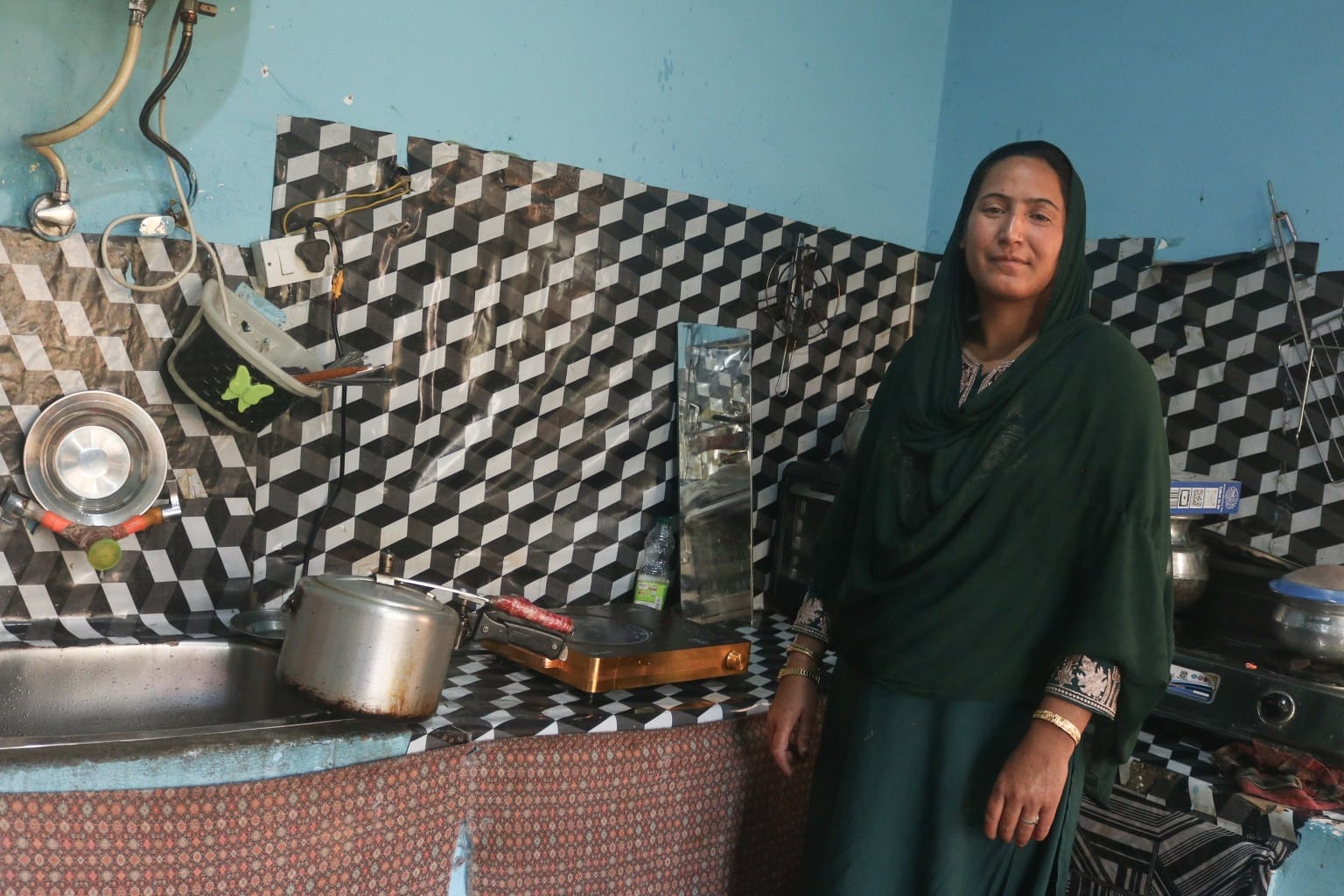
In a society like Kashmir, where all professions are mostly dominated by men, a 33- year-old woman from downtown Srinagar is making headlines for breaking gender stereotypes with her sheer determination by choosing the male-dominated auto driving profession.
Kounsar says that women are always being harassed in overcrowded buses, but starting e-rickshaw services in Srinagar proved fruitful. ‘Everyday, mostly women book my e-rickshaw, they encourage me and pay me more than a general auto fare,’ she adds.
Nazima Akhter, 25, a law student told Feminism in India that women are not safe in overcrowded buses in Kashmir. For her, seeing Kounsar’s e-rickshaw service in Srinagar is praiseworthy. ‘I travel everyday in her rickshaw to reach my college,‘ Nazima said.
For her, seeing Kounsar’s e-rickshaw service in Srinagar is praiseworthy. ‘I travel everyday in her rickshaw to reach my college,‘ Nazima said.
Over the last few years, the Union Territory of J&K, witnessed 3700 cases of crime against women in 2022, marking it the second highest among UTs after New Delhi. According to the National Crime Records Bureau’s fresh report, there were a total of 4,45,256 recorded incidents of crime against women in 2022, a 4% steep rise over the 4,28,278 cases that were reported nationwide in 2021.
Kounsar, who became the worst victim of domestic violence after marriage, spreads awareness regarding the crimes against women while driving rickshaws from lawns and towns.
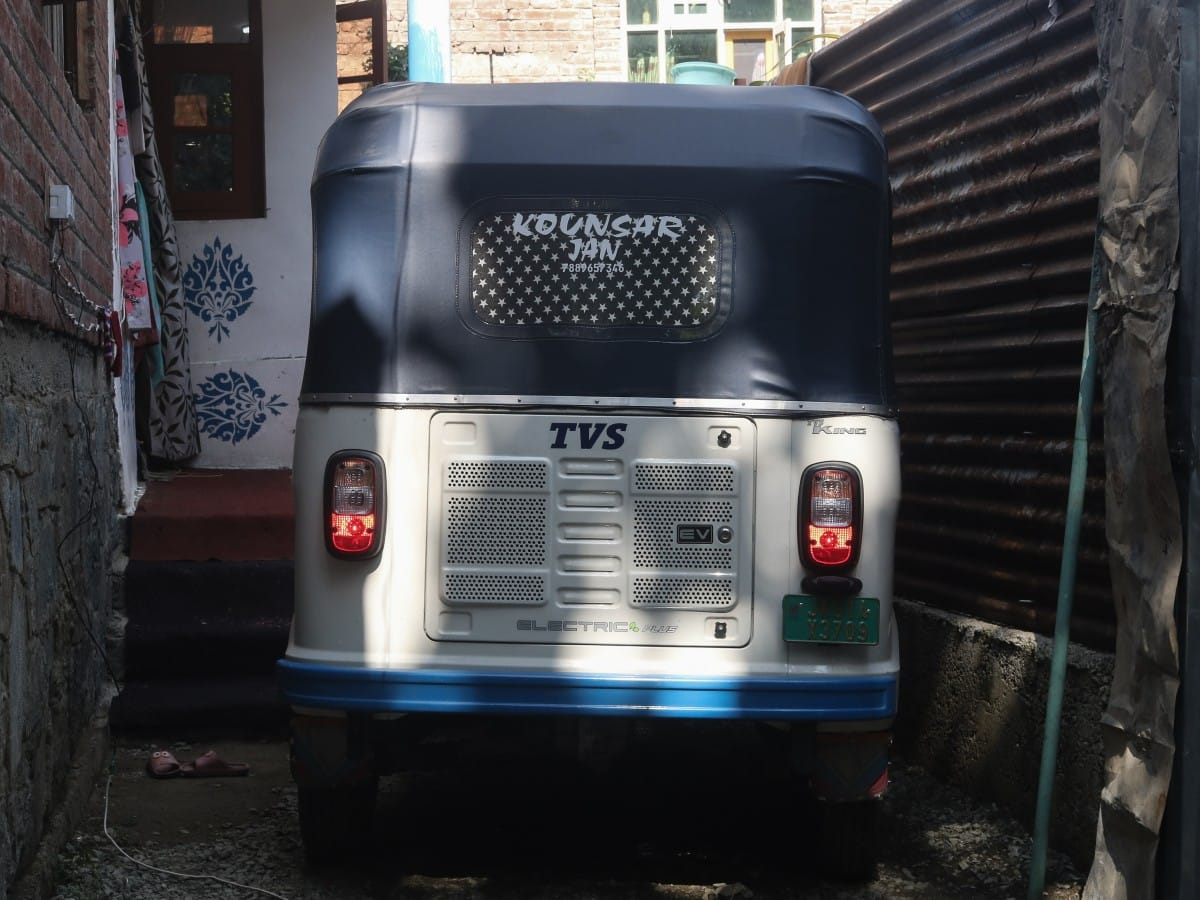
‘Apart from earning by e-rickshaw, I meet the women who face domestic violence. I make them aware about lodging complaints in different institutions,’ Kounsar told Feminism in India.
Introducing environment friendly transport
The transportation industry is regarded as a major contributor for causing air pollution, which is linked to greater death rates and raises the risk of cancer, heart and respiratory diseases. Keeping in view the devastating conditions of the environment, Kounsar has set up environment friendly transport at her own expense.
Kounsar’s initiative underscores a remarkable milestone for the women in Kashmir. ‘My initiative is aimed to implement environmentally friendly transportation for the safeguard of the environment and to promote women empowerment,’ Kounsar told Feminism in India.
Her rickshaw is running on chargeable lithium batteries, which according to her is a sustainable alternative to the traditional rickshaws and auto-rickshaws that are mostly dependent on fossil fuels. Adopting this environment friendly alternative, Kounsar says that this will reduce pollution in the city.
Adopting this environment friendly alternative, Kounsar says that this will reduce pollution in the city.
In addition to being a tale of personal success, Kounsar Jan’s path into e-rickshaw driving serves as an evidence of how women in Kashmir break stereotypes.
No support from the government
Kounsar was hopeful that the Government may help her, but nothing happened. She pinned her hopes on UMEED, a centrally sponsored scheme to encourage women to be self-dependent and self-sufficient. ‘I was given nothing,’ she added.
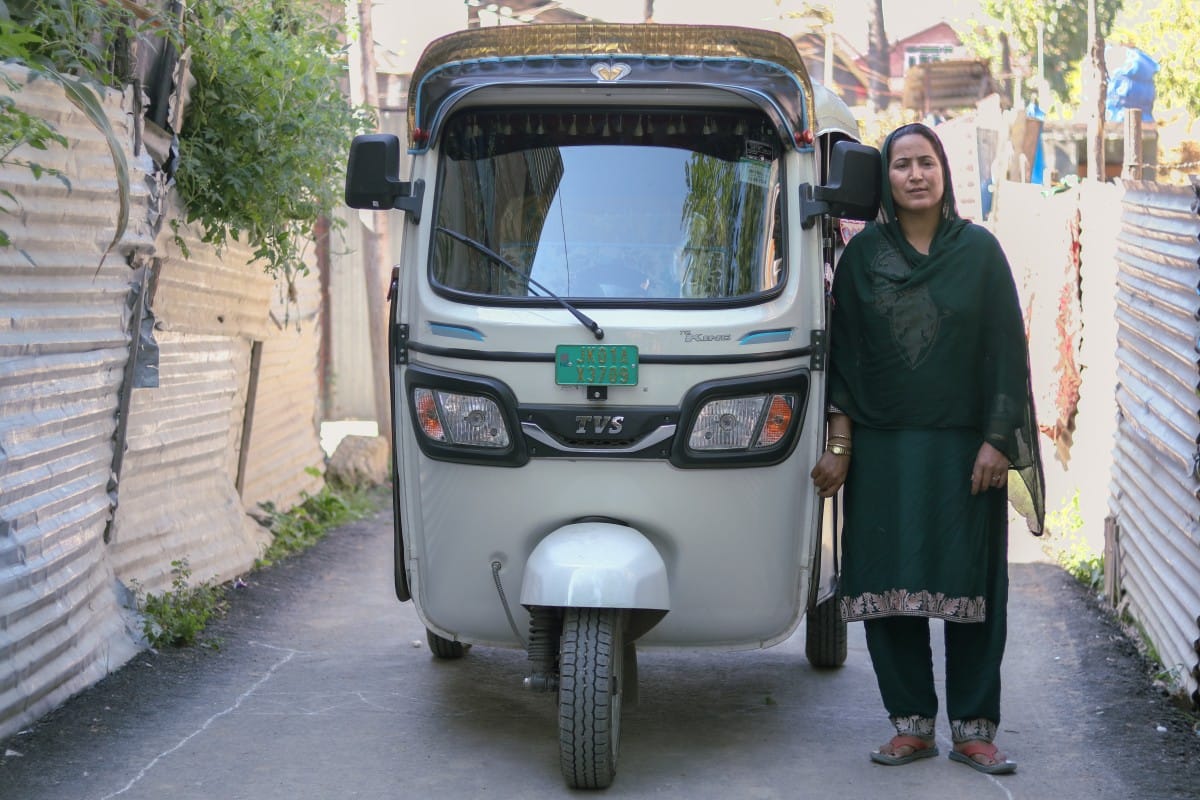
Despite promoting women empowerment, Kounsar was not given a single penny by the government, Kounsar got a loan from the bank and started her journey.
She became the first lady in Kashmir to adopt e-rickshaw driving. Her husband is bedridden. With no financial support from her home, Kounar brought an e-rickshaw auto for Rs 3,50000. ‘I want to help all women who are interested in the profession. I want to teach other women free of cost to make them self independent in society,‘ She told Feminism in India.
As a female e-rickshaw driver, Kounsar’s first drive in Srinagar city left everyone shell shocked, as the people had not seen any female e-rickshaw driver throughout their life.
‘I felt shy when I rode an rickshaw for the first time in densely populated Srinagar city. But the women mostly preferred my auto rather than others, it encouraged me to move on,’ she said.
Kounsar has been in the auto driving profession for the last two years, she earns 500 to 800 per day.
Kounsar has been in the auto driving profession for the last two years, she earns 500 to 800 per day. ‘The conflict within the family pushed me to take this field. I support my father in law and mother who was abandoned by her son through my profession,’ she added.
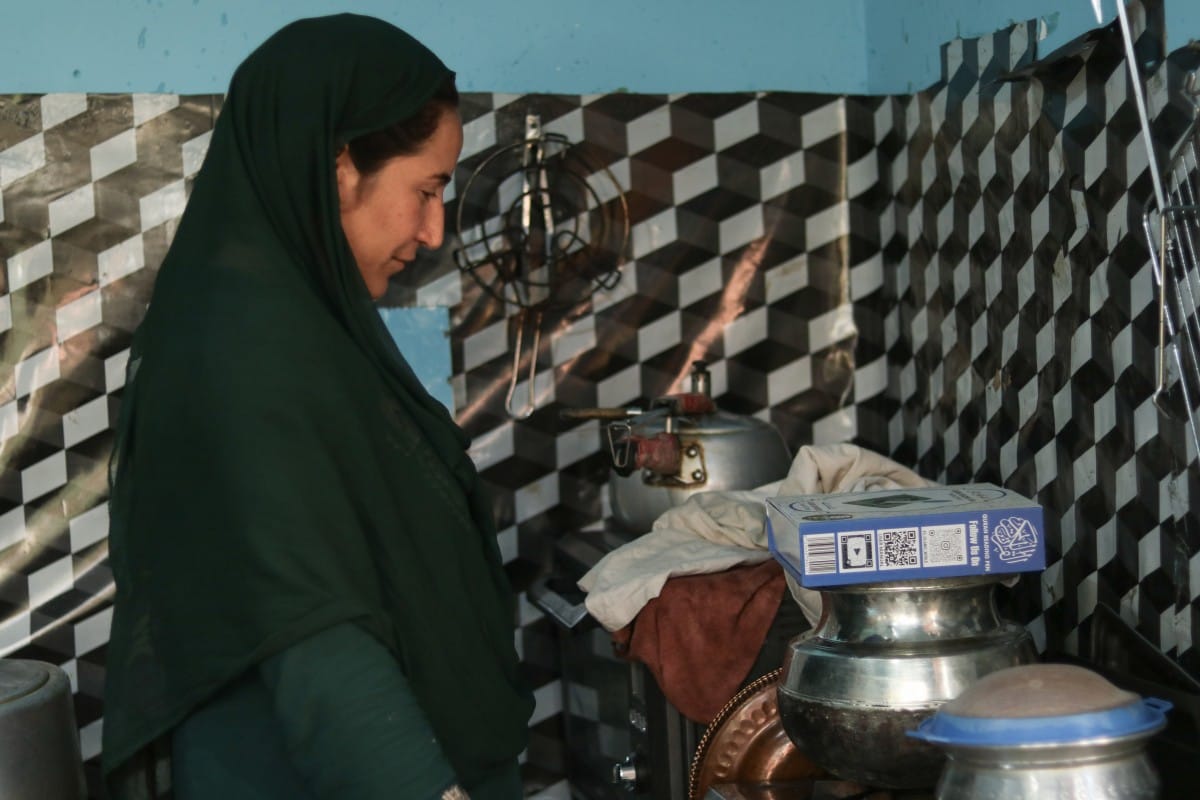
Hailing from Srinagar’s Chattabal, Kounsar has passed the eighth grade, with one daughter. However, after a few years of marriage, she experienced domestic violence from her in-laws. ‘My brother-in-law threatened us. He abandoned his father as well. But I take care of everything at home, support my husband and father in law as well,’ she told Feminism in India.
Treat your work as worship, says Kounsar Jan
Kounsar says that one should treat their work as worship. She believes that hardships are part of life. One must continue working hard with grit and determination to fulfil the dreams. ‘We all have different aims and ambitions, if we are concerned and serious about them, we can achieve them at any cost,’ she adds. Kounsar has never reacted to the criticism and taunts she faced in the society, she always focuses on the dreams. ‘Those who taunted me earlier, are booking my e-rickshaw now,‘ she said.
She says that women have different capabilities, they can create job opportunities for others, they shouldn’t be restricted in their career choices.
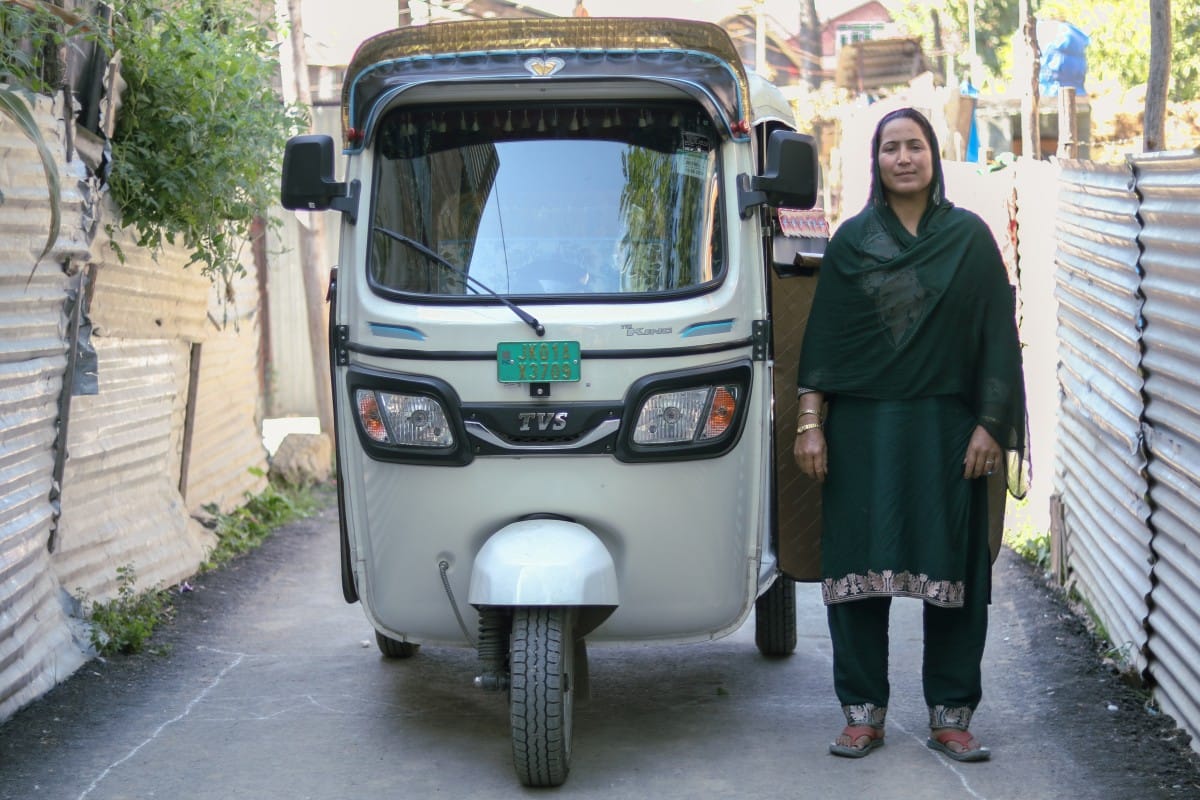
Kounsar started rickshaw driving with pride and dignity. She is satisfied with this work, adding that hundreds of degree holder women in Kashmir are sitting at home, with no entrepreneurial skills. ‘I will teach free driving skills, and the Government has many many schemes to empower women financially,’ she told Feminism in India.



